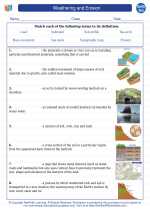Atoms: The Building Blocks of Matter
Atoms are the fundamental building blocks of matter. Everything around us, from the air we breathe to the water we drink, is made up of atoms. Understanding atoms is crucial in understanding the composition and behavior of all the substances in the universe.
Structure of Atoms
Atoms are composed of three fundamental particles: protons, neutrons, and electrons.
- Protons: positively charged particles found in the nucleus of an atom.
- Neutrons: neutral particles found in the nucleus of an atom.
- Electrons: negatively charged particles that orbit the nucleus in specific energy levels.
Atomic Number and Mass Number
The atomic number of an atom is equal to the number of protons in its nucleus. The mass number is the sum of the number of protons and neutrons in the nucleus.
Isotopes
Atoms of the same element can have different numbers of neutrons, leading to the formation of isotopes. Isotopes of an element have the same atomic number but different mass numbers.
Electron Shell Configuration
Electrons in an atom are arranged in specific energy levels, or shells, around the nucleus. The first shell can hold up to 2 electrons, while the second and third shells can hold up to 8 electrons each.
Study Guide
Here are some key concepts and questions to help you study atoms:
- Define an atom and its components.
- Explain the structure of an atom, including the arrangement of protons, neutrons, and electrons.
- Describe the difference between atomic number and mass number.
- Provide examples of isotopes and explain why they are important.
- Discuss the concept of electron shell configuration and how it relates to the chemical properties of an element.
- Practice drawing atomic models and electron configurations for different elements.
Understanding atoms is essential for grasping the foundations of chemistry and physics. Familiarizing yourself with these concepts will provide a solid framework for further exploration of atomic structure and behavior.
[Atoms] Related Worksheets and Study Guides:
.◂Earth Science Worksheets and Study Guides High School. Weathering and Erosion
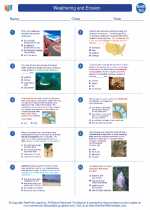
 Worksheet/Answer key
Worksheet/Answer key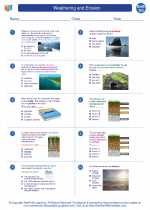
 Worksheet/Answer key
Worksheet/Answer key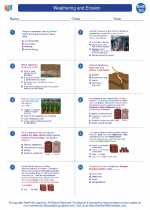
 Vocabulary/Answer key
Vocabulary/Answer key
 Vocabulary/Answer key
Vocabulary/Answer key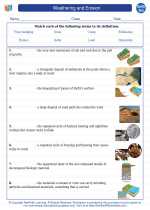
 Vocabulary/Answer key
Vocabulary/Answer key